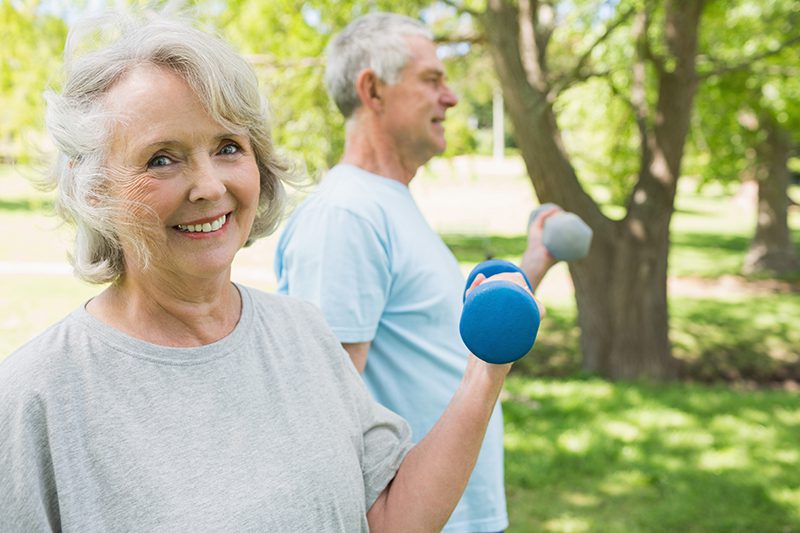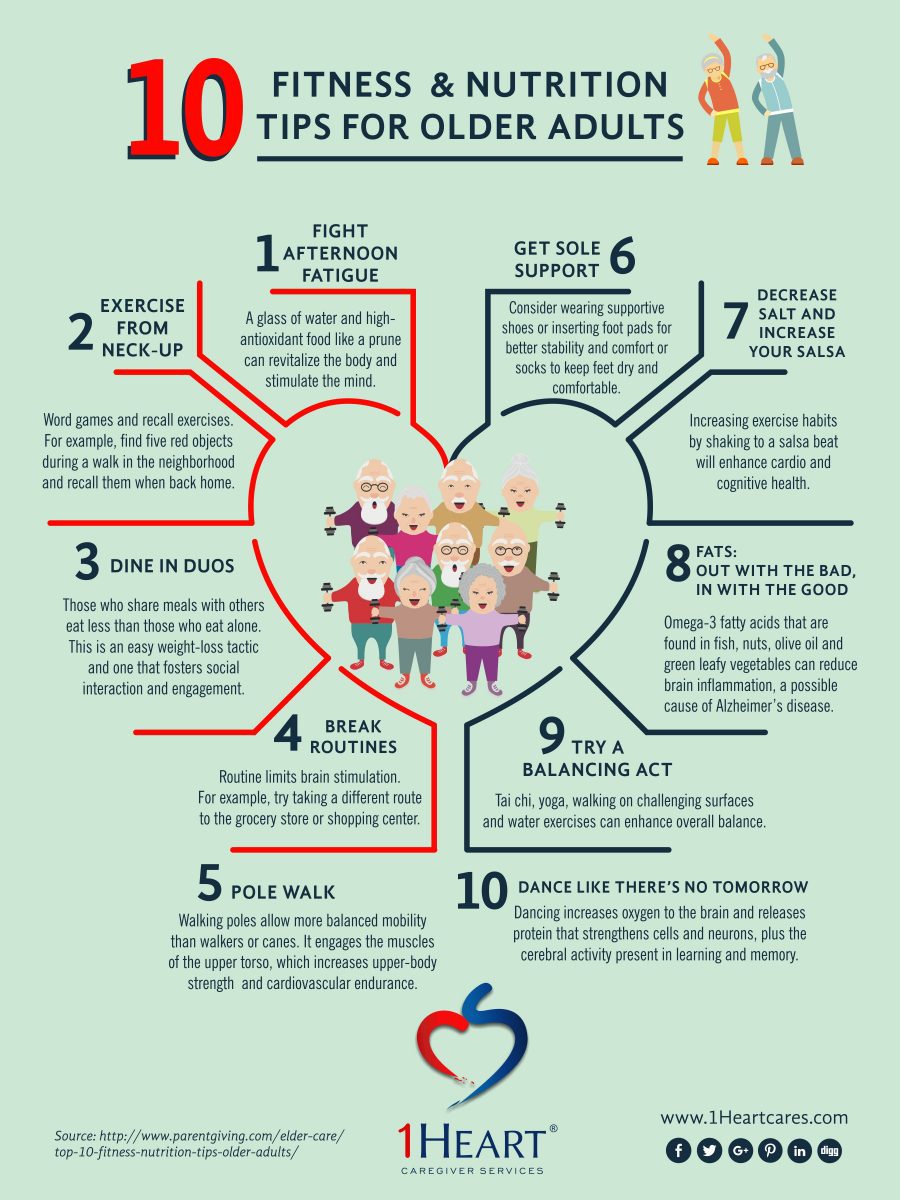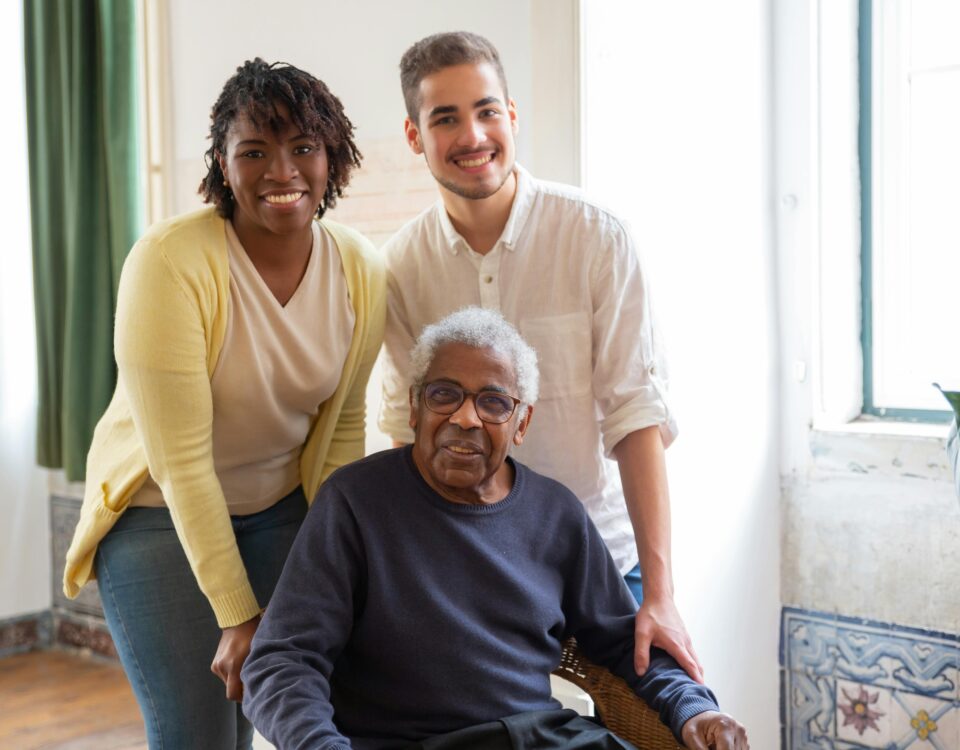You can’t always be there. But we can.
Eat Right and Stay Active for a Healthy Heart

Elders Can Stay Mentally Sharp with These Tips
February 6, 2017
Boosting the Elderly’s Immune System
February 13, 2017Eat Right and Stay Active for a Healthy Heart
Maintaining a healthy way of living is perhaps the best present you can give yourself during this heart month and onwards. A combination of good diet and adequate physical exercise would help keep your body fit.
 More so, diet and exercise particularly aid one of the most important organs in your body to help maintain its proper functioning. This is crucial especially to seniors or other individuals who are about to reach their golden years. As people age, arteries start to harden so exercise and proper diet becomes even more important especially if you are a senior.
More so, diet and exercise particularly aid one of the most important organs in your body to help maintain its proper functioning. This is crucial especially to seniors or other individuals who are about to reach their golden years. As people age, arteries start to harden so exercise and proper diet becomes even more important especially if you are a senior.
The heart is responsible for pumping blood to circulate through the veins and arteries in our body. It facilitates distribution of blood to the various organs in the body that are essential to proper body function so any form of impairment or disease to the heart can impair the flow of blood and cause life-threatening conditions.
Eating the wrong kinds of foods and remaining sedentary can harm your heart.
If you eat too much food that are high in bad cholesterol such as saturated fat (found in fatty beef, lard and cream, butter, poultry with skin) and trans fats (found in food with partially hydrogenated oils, French fries, baked goods, microwaveable popcorn, etc.) your arteries may possibly accumulate plaque and harden. Too much plaque buildup may eventually cause artery blockage which would starve tissues of blood and oxygen causing heart attack and stroke.
If you do not exercise, your muscles will degenerate. Since the heart is a muscular organ it is also prone to degeneration and lack of exercise may lead to poor circulation of blood in the body. Without exercise, you also won’t be able to help your body lessen cholesterol buildup to its arteries.
Below are 10 Fitness and Nutrition Tips for Older Adults
1) Fight Afternoon Fatigue
A Glass of water and high-antioxidant food like prune can revitalize the body and stimulate the mind.
2) Exercise From Neck-up
Word games and recall exercises. For example, find five red objects during a walk in the neighborhood and recall them when back home.
3) Dine in Duos
Those who share meals with others eat less than those who eat alone. This is an easy weight-loss tactic and one that fosters social interaction and engagement.
4) Break Routines
Routine limits brain stimulation. For example, try taking a different route to the grocery store of shopping center.
5) Pole Walk
Walking poles allow more balanced mobility than walkers or canes. It engages the muscles of the upper torso, which increases upper-body strength and cardiovascular endurance.
6) Get Sole Support
Consider wearing supportive shoes or inserting foot pads for better stability and comfort or socks to keep feet dry and comfortable.
7) Decrease Salt and Increase Your Salsa
Increasing exercise habits by shaking to a salsa beat will enhance cardio and cognitive strength.
8) Fats: Out With The Bad In With The Good
Omega-3 fatty acids that are found in fish, nuts, olive oil and green leafy vegetables can reduce brain inflammation, a possible cause of Alzheimer’s disease.
9) Try A Balancing Act
Tai chi, yoga, walking on challenging surfaces and water exercises can enhance overall balance.
10) Dance Like There’s No Tomorrow
Dancing increases oxygen to the brain and releases protein that strengthens cells and neurons, plus the cerebral activity present in learning and memory.
sources: parentgiving.com, cdc.gov, livestrong.com, heart.org, medlineplus.gov, huffingtonpost.ca, webmd.com
Disclaimer: 1Heart Caregiver Services Blog may contain articles about health care and medical related topics. However, no warranty is made that any of the articles are accurate. There is absolutely no assurance that any statement contained or cited in any or our articles touching on health care or medical related matters is correct, true, up-to-date or, precise, If any of the statements we mentioned about healthcare or medicine is accurate, it may or may not apply to you or your symptoms.
The health care or medical information provided on 1Heart Caregiver Services is, at best, of a general nature and cannot replace the advise of a health care/medical professional. 1Heart Caregiver Services will not take responsibility for the results or consequences in attempting to use or adopt any information presented in its blog article


